When Charles Rogers, the 32-year-old co-creator of Search Party, was a teen living near the U.S. border in Texas, he created a fake but "very intricate invitation" to a friend's party, printed it out, and gave it his parents. He did so as a ruse to sneak out to party in Mexico.
His parents eventually figured out the deception. "I can't believe you created a fake invitation with like an address and everything," they told him at the time. But in retrospect, it is not so hard for Rogers to believe that he or any other LGBTQ+ person who once had to hide their identity would be skilled at subterfuge.
"I'm a really good liar," the gay director said. "I used to lie all the time. I still do. I think a lot of queer people do -- even if it's just like, 'I don't want anyone to know that I drove to another part of town to have a tuna melt.'
"No one can know that I had that tuna melt. And I don't know why that matters to me, but I still need to have my little lies here and there. I think it's just protective of an inner life."
This week sees the long-awaited return of Search Party, the mystery series from Rogers, Sarah-Violet Bliss, and Michael Showalter about a group of millennials investigating the disappearance of a lost acquaintance, Chantal (Clare McNulty), which results in the death of private investigator Keith (Ron Livingston).
A lot of season 3 is about lying -- and denial, and the space in between. As the criminal justice system closes in on Dory (Alia Shawkat), Drew (John Reynolds), Elliott (John Early), and Portia (Meredith Hagner) over the circumstances surrounding Keith's passing, the characters must spin a story of innocence to both jurors and the world that does not always rely on the truth.
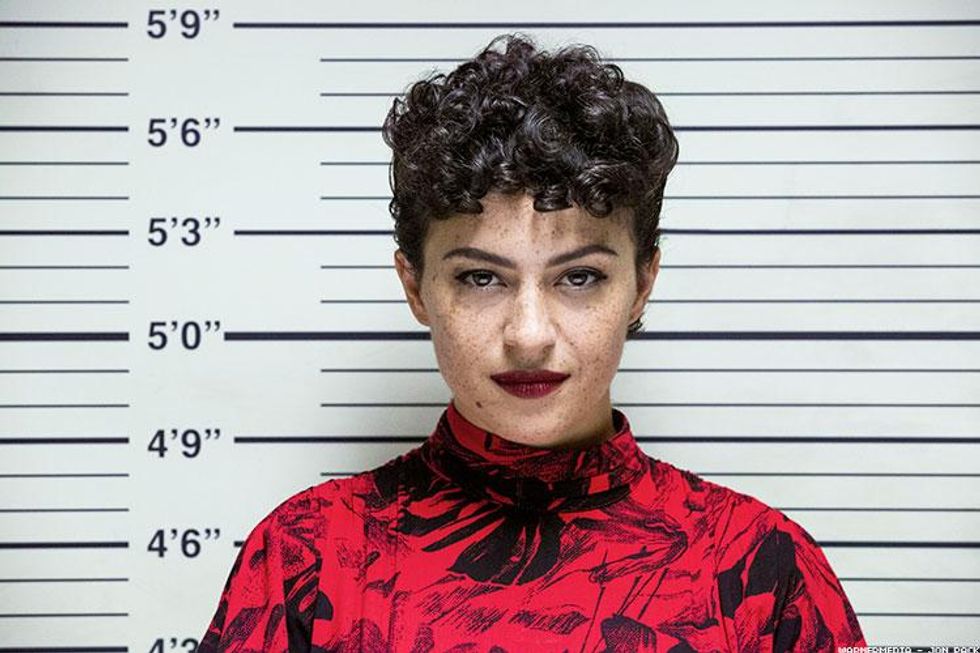
While Dory goes through a journey of the depths she'll sink to in this regard, she has some deceptive role models in her friend circle. Elliott embodies the gay liar. In past seasons, he lied about a cancer diagnosis to elicit sympathy and attention. His mendacity reaches new heights in season 3, which comes to a reckoning during a trial over Keith's murder as well as his wedding day with his fiance, Marc (Jeffrey Self).
This latter moment is one of the season's queer highlights (of many). In this "very gaudy, Trumpy, extravagant" ceremony, there are a number of "disgusting and creepy flourishes," as Rogers characterized them, which show varying degrees of falsity. Child actors portray the younger versions of the couple. Sponsorships from corporations with anti-LGBTQ+ histories cover the cost of the $1.2 million event in order to broadcast false prosperity. (Inevitably, gay actors Drew Droege and Sam Pancake portray the wedding planners. Carrie Brownstein directed the episode.)
In the new season, Elliott reaches the "2.0" version of "narcissistic white gay," Rogers said. Initially, the character was inspired by "a few people we knew who were movers and shakers but you never knew what they did," he revealed. "And then, when we started to really embrace him being a liar, that was the crux to understanding just what a toxic white gay man Elliot is."
"There's so much out there, especially on social media, to pull from in portraying that type of person," he added.
When Search Party premiered in 2016, Elliott was refreshing in a television landscape still populated with "good gay" tropes on shows like Modern Family. While the gay villain is a reviled trope from film history, he can also serve a different purpose in the right hands.
"I personally love a gay villain. I love Scar from The Lion King or even like Dr. Evil. The gay villain is the most fun villain for me," Rogers said. "But of course, it sucks that they have all been portrayed through largely straight lenses. I think that there's a lot to borrow from that we find fun and juicy, but give it our own spin where it's protected through the overall irony and point of view."
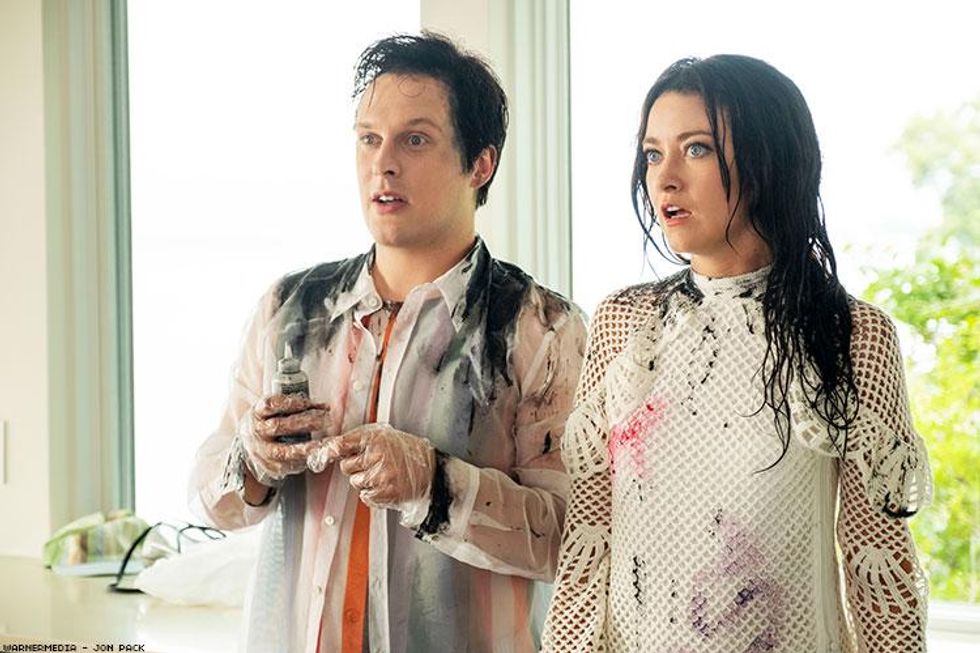
On Search Party, Elliott is both a reflection and evisceration of the worst of white gay men in America. Historically, the character emerged just after two major shifts in U.S. culture: the enactment of marriage equality and the election of Donald Trump. As a gay man, he holds pain, but as a white man, he holds privilege. The balance between these two poles is not lost on Charles, who has reckoned with it himself.
"Within five years, white gay men went from being the poster child victim of the queer movement in order to appeal to a white straight America ... [to] the clear patriarchy of the queer community," he said. "It's really interesting to watch how I've adjusted to that evolution and how other friends I have who are white and gay have to [as well]."
"I think a lot of white gay men were just beginning to see [the world] acknowledge that their pain is valid," he added. "And then now there's this quick adjustment to realizing just how much more in pain other people are in the queer community. I think that the trick for writing these white gay narcissists like Elliott is that his pain is valid -- but he's also in the wrong in so many ways."
As Rogers has sheltered in place with his parents near Austin during the pandemic and the Black Lives Matter protests ("I gotta get back to L.A.," he remarked), he has had his own opportunities for self-reflection.
"The thing I've realized the most in examining my own privilege is that I thought I had done enough examining, and I'm grateful for society to have pushed me further with it," Rogers said, "because I think that when it comes to the shadow side, you can always dive deeper."
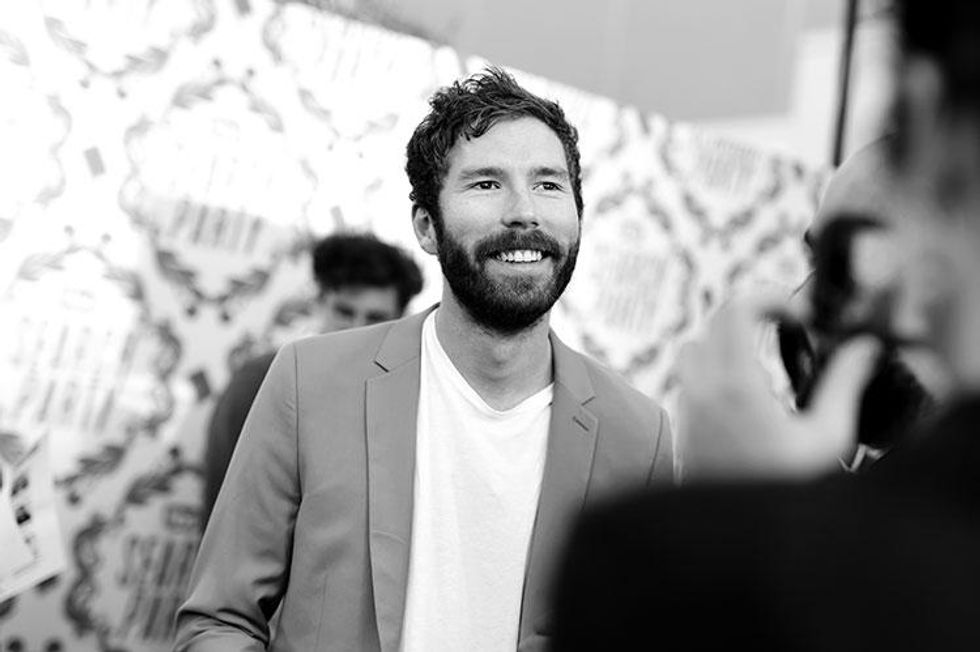
This examination also applies to Search Party, which is heavily queer but also very white in its casting. The show has one Black series regular, Brandon Micheal Hall, who is mostly out of sight in season 3. Shalita Grant, who is Black, joins season 3 as a key recurring character. Shawkat has Middle Eastern and European ancestry.
"I think that the show should have and could have always been more diverse than it is," said Rogers. "I think Search Party is kind of like a universe that's populated with all types of people. And I think I've tried to always understand the footing around portraying any type of person that I'm not because I want to apply a comedic and satirical lens to the whole world, every character in it. But there are just some things that are not yours to play with, and so then I think my fragile white mind just tries to understand how to navigate wanting to be inclusive but also not wanting to say the wrong things. I think there are a lot of creative white people that might feel similarly.
"I'm still trying to educate myself about that, but I think that the sort of message that I feel the most agency with in the show is, it's an examination of privilege. ... The show is ultimately about denial, and it's about Dory. Dory is a symbol of denial. And I think that a lot of the themes around the social movements happening today have so much to do with denial, especially insofar as white people's relationship to it goes. And I just want the show to keep unpacking the denial is in the characters, and I want to do the same for myself in creating it."
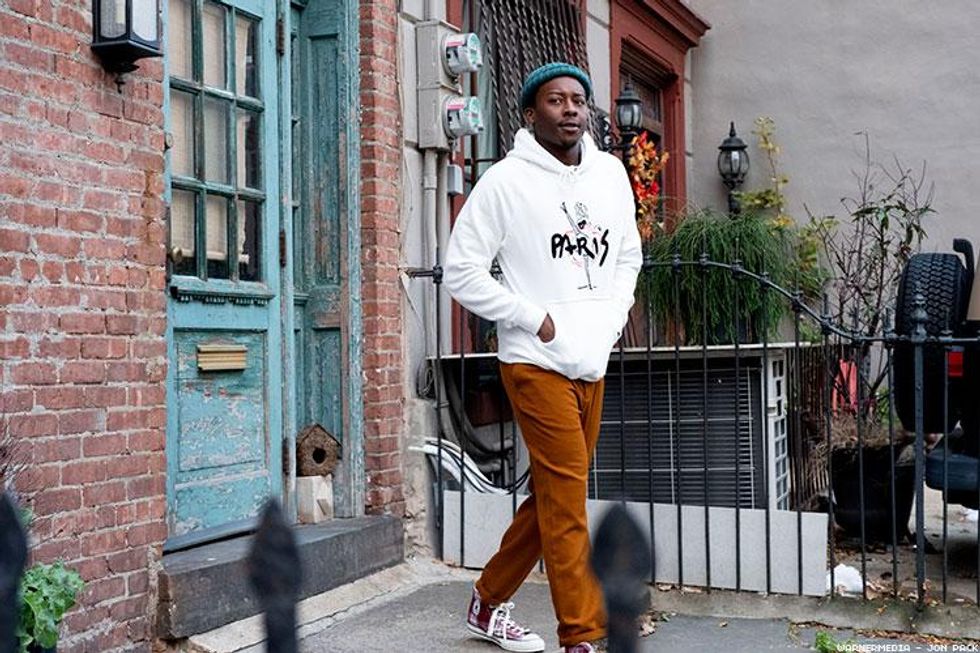
As much as there is room for improvement, Search Party remains notable for its queer lens. In addition to Elliott, who opens the show to several LGBTQ+ storylines, queerness pervades Search Party's perspective, tone, style, and humor. What other show would bury a body in zebra-striped luggage, hide a murder confession on a cassette tape, or feature a troupe of twinks as cater waiters?
Rogers said that he "can't take full responsibility" for the queer lens of Search Party. He credits the queer writers and "a lot of very funny, smart people" at every level of production. That's not to mention the sizable amount of out talent in front of the camera. This season alone features Jeffrey Self, Lisa Haas, Droege, Pancake, Joel Kim Booster, and Cole Escola, to name a few, in addition to the intentional casting of LGBTQ+ extras in scenes, which is still not the norm in Hollywood.
"I'm surprised that that doesn't often get commented on," Rogers said. "I think a lot of straight people don't necessarily know when to identify queerness."
"Search Party is camp," he affirmed. And that plays out in beautifully in this season's many courtroom scenes as Dory and Drew stand trial for murder. Rogers recounted how the actors who portrayed the lawyers -- Grant, Michaela Watkins, and Louie Anderson -- received applause for their over-the-top monologues. He compared the experience to play watching.
"There's just something really nice comedically about courtroom scenes in that they are supposed to be played so straight," he said. "So then when you drop in these more extreme characters like we have, their personalities aren't going to be able to cooperate with the way formal situations work."
Rogers singled out Grant, in particular, who portrays Dory's counsel, Cassidy, for her ability to turn the genre on its head. Cassidy, a newly minted lawyer who takes Dory's case pro bono to heighten her profile, has designer clothes, a vocal fry, and plenty of personality. "The legal thriller genre can feel a little too heavy and procedural. And it was like well, we just need somebody that has like way too much energy and is too fabulous for her own good," he said.
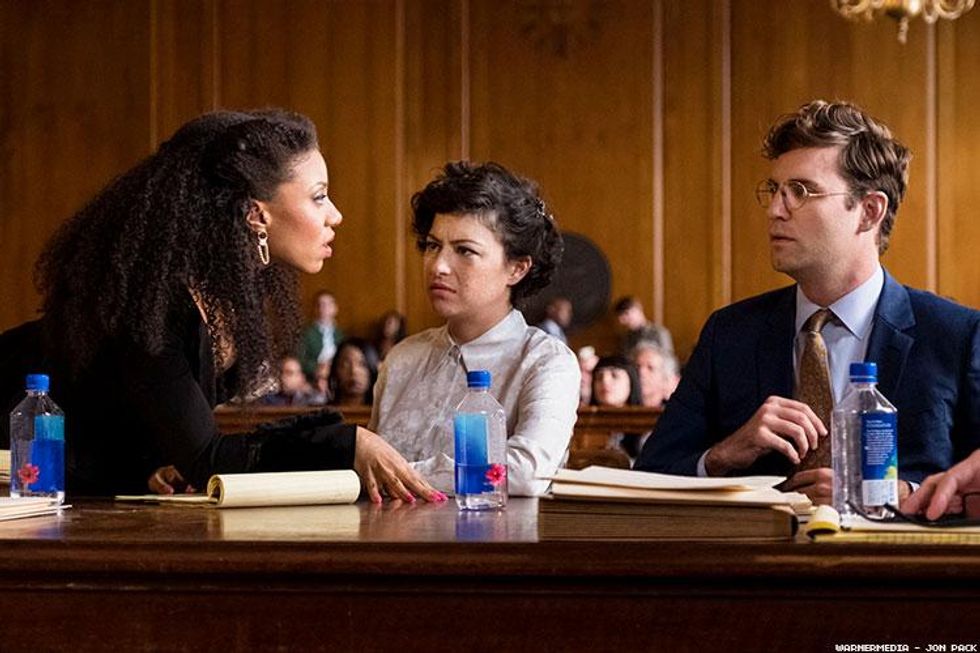
And filming a courtroom drama (albetit comedically) was an entirely new experience for Rogers. "I still feel like I'm in film school," he admitted. He pointed to watching The People v. O. J. Simpson: American Crime Story as his greatest education in the genre.
Rogers is curious to see how the season will be received in 2020 when demands for police reform (and defunding) make headlines daily. "I think there's some scenes in it that are just American and timeless when it comes to the legal system being very corrupt," Rogers said. "The show is largely a satire about white privilege. And I think that all of those themes were alive and well in 2016 and continue to be."
In fact, it's been almost three years since season 2 aired. The reason for the delay was primarily corporate. WarnerMedia, which oversees TBS, announced in 2018 that season 3 of Search Party would be part of its upcoming streaming service, HBO Max, the launch of which was originally planned for 2019. That would later be pushed back to 2020.
At the time, Rogers had "mixed emotions" about the news, which was at once "disappointing" in its delay and "exciting" that the show would reach a wider audience. Season 3 wrapped production at the end of 2018, and in fact, season 4 is almost complete as well. Thus, Search Party's team essentially created season 4 in a "vacuum," said Rogers, without the benefit of viewer feedback from season 3.
Of course, a lot has happened in the news cycle since November 2016, when the show first premiered. Young people have been forced by time and politics to do a lot of growing up. The characters of Search Party, once hailed by critics as tapping into the zeitgeist, may now be on a different timeline.
"When we started making the show, we were all in our 20s, and now we're in our 30s, but maybe the characters are still in their 20s," Rogers said. "It's interesting how it's all moved."
Seasons 1, 2, and 3 of Search Party are now available to stream on HBO Max. Watch the trailer below.

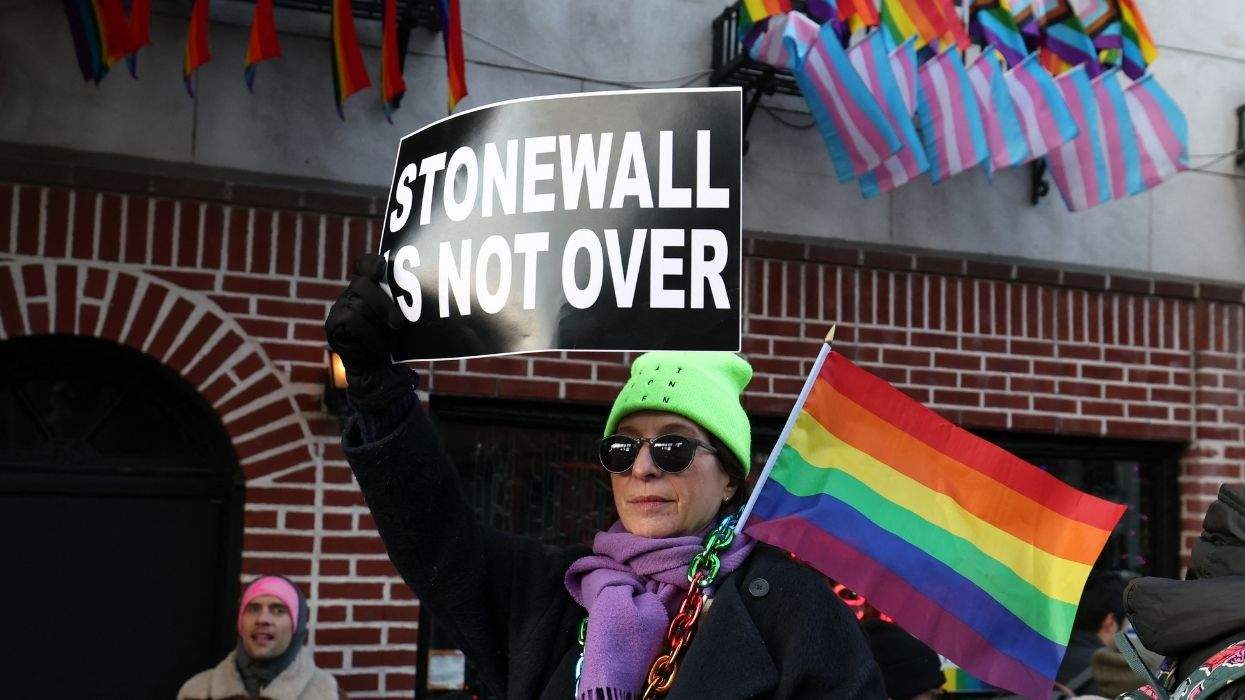













Charlie Kirk DID say stoning gay people was the 'perfect law' — and these other heinous quotes
These are some of his worst comments about LGBTQ+ people made by Charlie Kirk.